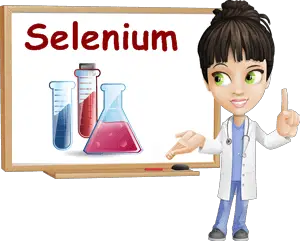Keeping in good health can, at times, be difficult, mostly because the body requires different amounts of various nutrients to stay healthy and function properly. While in the case of minerals such as calcium, magnesium or iron a deficiency may easily install, this is certainly not the case with selenium. Although it is of great importance for physical health, our body requires very little selenium to remain healthy. Moreover, common foods such as eggs, beef, tuna, sardines, turkey or spinach are generous sources of the nutrient, available to many of us.
Adequate amounts of the mineral will not only strengthen our immune system, but will also help regulate thyroid function and maximize antioxidant protection, as it will be explained in this present article. Brazil nuts are by far one of the best dietary sources of selenium, followed by fish, poultry, beef, spinach, oats and brown rice. However, Brazil nuts are not readily available to everyone and do contain rather excessive amounts of selenium, limiting consumption to maybe a nut at best.

Selenium deficiency causes and symptoms
Selenium is a mineral of great dietary importance. It is a valuable asset of any diet, boasting rather impressive health benefits. After ingestion, the mineral is absorbed at intestinal level after which the body can start making use of it.
- Very important: malabsorption problems, weight-loss surgery and other similar medical conditions are the main causes of selenium deficiency which otherwise cannot occur easily.
Malabsorption refers to the body’s inability to properly absorb nutrients (phytochemicals, vitamins and minerals) at the level of the gastrointestinal tract. In the case of selenium, deficiency symptoms may include: muscle weakness, fatigue, thyroid problems such as hypothyroidism, joint inflammation and poor antioxidant protection.

What is selenium good for?
What does selenium do more exactly and how does a poor intake affect our body? First of all, low levels of the mineral have been linked to an increased risk of prostate cancer. Because it improves antioxidant activity, selenium is believed to reduce cell damage associates with the condition. In addition to this it would appear that children diagnosed with malabsorption problems are also found to have a selenium deficiency.
An increase in dietary selenium intake would help improve digestion, ease and ultimately treat the condition. Although selenium food supplements are easily available, it would be best to opt for natural sources of the mineral, seen that the human body requires altogether very little amounts of the mineral and food sources can easily make up for any deficiency. Nevertheless, always discuss with your doctor about any medical problem before proceeding to make a final decision and together work out a solution fit for your needs.
Cardiomyopathy is a disease which causes the heart muscle to deteriorate, leading to heart failure and, ultimately, death. It is believed that one of the main causes of cardiomyopathy is selenium deficiency.
A deficit of the mineral means low antioxidant activity in the heart muscle which, in time, causes it to deteriorate.
Moreover, selenium is crucial for a healthy thyroid gland and normal thyroid hormone production.
The mineral is required for the production of antioxidant enzymes necessary to deactivate and get rid of free radicals resulting from the production of thyroid hormones. When the thyroid gland isn’t functioning properly, metabolic problems, increased risk of thyroid cancer, hypothyroidism or hyperthyroidism and inflammation may develop.
Increasing selenium intake may prove helpful in reducing the severity and treating symptoms of intracranial pressure such as headaches, mild speech impairment, nausea, dizziness and fatigue.
Moreover, recent research suggests that people suffering from asthma also lack sufficient selenium in their bodies. Vitamin C and vitamin E deficiencies may also increase selenium deficit. A good intake of selenium, beta-carotene, vitamins C and E is believed by some experts to successfully prevent and help control asthma attacks.
Selenium for dandruff
Good to know: selenium-based shampoos can help treat dandruff problems. If you lack sufficient selenium, you can increase your intake naturally by consuming any of the foods mentioned above as the best dietary sources of selenium. However, when it comes to Brazil nuts, the richest source of the mineral, intake is best kept modest not only because you risk intoxication given the impressive content of the mineral in the nut variety, but also because the nuts accumulate heavy metals from the soil which could be a source of side effects if intake is excessive.
Also see benefits of Brazil nuts.
Selenium toxicity: selenosis
Remember to follow your doctor’s instructions very carefully when taking selenium food supplements because an excessive intake can be potentially fatal. Symptoms of selenosis (selenium toxicity) include diarrhea, nausea, irritability, neurological problems, liver cirrhosis and pulmonary edema. A specific symptom appears to be garlic-smelling breath. Again, follow your doctor’s recommendations closely.
